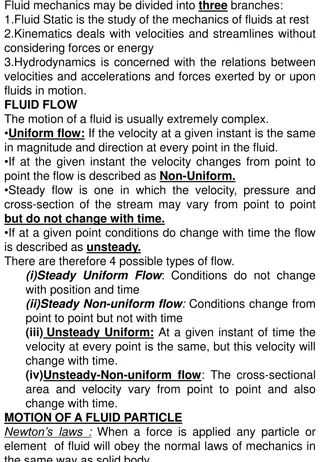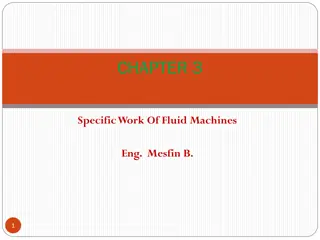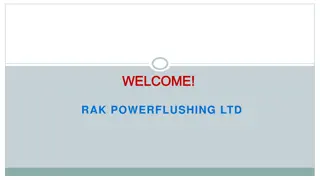What happens if your car is leaking radiator fluid
A radiator fluid leak can lead to engine overheating, causing severe damage like a blown head gasket or engine failure. Common causes include a cracked radiator, worn hoses, or a failing water pump. If you notice coolant puddles under your car or a r
Download Presentation

Please find below an Image/Link to download the presentation.
The content on the website is provided AS IS for your information and personal use only. It may not be sold, licensed, or shared on other websites without obtaining consent from the author.If you encounter any issues during the download, it is possible that the publisher has removed the file from their server.
You are allowed to download the files provided on this website for personal or commercial use, subject to the condition that they are used lawfully. All files are the property of their respective owners.
The content on the website is provided AS IS for your information and personal use only. It may not be sold, licensed, or shared on other websites without obtaining consent from the author.
E N D
Presentation Transcript
What happens if your car is leaking radiator fluid?
Potential Engine Overheating A radiator fluid leak can lead to insufficient cooling, causing the engine to overheat, which may result in severe damage if not addressed promptly.
Increased Repair Costs Ignoring a coolant leak can lead to costly repairs, including head gasket failure, radiator damage, or even complete engine failure over time.
Warning Signs to Watch For Look for puddles under your car, a sweet-smelling odor, or a rising temperature gauge, all of which indicate a possible radiator fluid leak.
The Dangers of a Radiator Fluid Leak in Your Car
Potential Component Damage Over heating Risk Coolant Puddles Sweet Smell Dashboard Warnings Frequent Need for Coolant Refills Reduced Heating Efficiency Lower Coolant Levels Steam from the Engine Strange Engine Noises
Common causes include a damaged radiator, worn-out hoses, a faulty water pump, or a cracked coolant reservoir leading to fluid loss.
Look for coolant puddles under your car, a sweet smell, overheating, or a fluctuating temperature gauge as key warning signs.
3.HOW A LEAK AFFECTS ENGINE PERFORMANCE
Low coolant levels can cause overheating, reducing engine efficiency and potentially leading to severe damage like a blown head gasket.
4.POTENTIAL RISKS OF IGNORING A LEAK
Delaying repairs can result in engine overheating, corrosion, or complete engine failure, leading to expensive repairs or replacements.
5 .IMMEDIATE STEPS TO TAKE WHEN YOU NOTICE A LEAK
Check coolant levels, inspect hoses and the radiator, and avoid driving long distances until the issue is resolved.
6.WHEN TO SEEK PROFESSIONAL HELP
If the leak persists, causes overheating, or you notice white smoke from the exhaust, consult a mechanic for proper diagnosis and repairs.
7 .PREVENTIVE MEASURES TO AVOID COOLANT LEAKS
Regular maintenance, inspecting hoses and the radiator, and using the correct coolant type can help prevent leaks and ensure proper cooling.
8.THE IMPORTANCE OF TIMELY REPAIRS
Fixing leaks early prevents engine damage, maintains fuel efficiency, and ensures a smooth and reliable driving experience.
Act Fast to Prevent Damage Ignoring a radiator fluid leak can cause severe engine issues, so prompt inspection and repairs are essential to avoid costly breakdowns.
Prioritize Routine Maintenance Regular coolant checks and professional servicing help prevent leaks, ensuring your engine stays cool, efficient, and in top condition for long-term performance.























